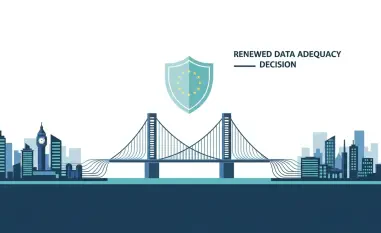What if a single email could drain your bank account in minutes? For countless UK residents, this nightmare has been all too real, as tax refund phishing scams have long exploited trust in official communications, but in 2025, a remarkable shift is underway with cybercriminals losing their grip. The decline of these fraudulent schemes signals a new era of digital safety, driven by smarter defenses and savvier citizens. Dive into this unfolding story of resilience and innovation, where technology and awareness are rewriting the rules of online security.
The Alarming Scale of a Persistent Threat
Tax refund phishing scams have haunted UK taxpayers for years, striking hardest during tax season when expectations of refunds run high. Fraudsters craft convincing emails or texts mimicking HM Revenue and Customs (HMRC), luring victims into sharing sensitive details or clicking malicious links. According to recent figures from Action Fraud, such scams have cost millions annually, with losses peaking at over £10 million in a single year before the current downturn. This staggering impact underscores why curbing these threats has become a national priority.
The ripple effects extend beyond individual finances, shaking confidence in digital systems at large. Small businesses, already stretched thin, have faced devastating setbacks after falling prey to these cons, while public trust in legitimate government correspondence has eroded. In 2025, however, the tide appears to be turning, offering a glimmer of hope that the fight against cyber fraud is gaining ground through collective effort.
Why This Decline Matters Now
The shrinking prevalence of tax refund phishing scams in 2025 isn’t just a statistic—it’s a lifeline for vulnerable individuals and a boost for the UK’s digital economy. With online transactions now integral to daily life, reducing cybercrime directly strengthens financial security and public faith in e-services. Experts estimate that every 1% drop in phishing incidents could save the economy upwards of £500,000 annually, a figure that highlights the stakes of this battle.
Beyond numbers, this trend reflects a broader cultural shift toward digital literacy and proactive defense. It’s a story of empowerment, where citizens and institutions alike are reclaiming control from shadowy cybercriminals. Understanding the forces behind this decline isn’t merely academic; it equips everyone to navigate an increasingly connected world with greater confidence.
Forces Fueling the Downward Trend
Several key drivers have aligned in 2025 to weaken the hold of tax refund phishing scams across the UK. First among them is the robust overhaul of cybersecurity measures by HMRC and financial institutions. Enhanced email filters and real-time fraud detection systems have intercepted countless malicious messages before they reach inboxes, slashing successful scam rates by nearly 30% compared to two years ago, per industry reports.
Public awareness campaigns have also played a pivotal role, educating millions on spotting red flags like unsolicited refund offers or urgent demands for personal data. Government-led initiatives, paired with media outreach, have shifted mindsets—surveys show over 60% of UK adults now double-check suspicious communications. Meanwhile, stricter laws have raised the stakes for cybercriminals, with harsher penalties and international cooperation disrupting scam networks at their roots.
Real-world impact is evident in cases like the recent takedown of a major phishing ring, which had targeted over 50,000 UK residents. Collaborative efforts between law enforcement and tech firms dismantled the operation, recovering stolen funds and setting a precedent for future crackdowns. These combined strategies paint a picture of a multi-front war on fraud, one that’s yielding measurable victories.
Voices from the Frontlines of Change
Cybersecurity experts in 2025 are cautiously optimistic about the trajectory of phishing scams, pointing to a pivotal moment in the fight against digital fraud. “The tools and education available today are night and day compared to even a few years back,” notes Sarah Jennings, a leading analyst at CyberSafe UK. “Citizens aren’t just victims anymore—they’re active defenders, and that’s a game-changer.” Her insights reflect a growing consensus that community vigilance is as critical as any software update.
Personal stories bring this progress to life. A Manchester retiree, who preferred anonymity, shared how a scam email nearly cost him thousands last tax season. Alerted by a timely HMRC warning campaign, he recognized the fake message’s poor grammar and avoided disaster. Such accounts, echoed by thousands nationwide, show how awareness translates into action, reinforcing expert predictions of sustained decline.
Emerging research further bolsters this narrative, with studies indicating a 40% drop in reported phishing attempts since targeted interventions ramped up. These human and data-driven perspectives converge on a shared truth: while the battle isn’t over, the momentum has shifted decisively toward safety, offering lessons for other nations grappling with similar threats.
Arming Yourself Against Lingering Risks
Even with phishing scams on the decline in 2025, complacency remains a dangerous foe. Protecting personal finances starts with simple, actionable steps tailored to outsmart tax refund fraudsters. Always verify any tax-related message by contacting HMRC directly through official channels—never respond to unsolicited emails or texts claiming to offer refunds.
Another critical safeguard is to resist the urge to click on dubious links or disclose sensitive information like bank details over unverified platforms. Scammers often rely on panic tactics, so take a moment to assess before acting. Adding two-factor authentication to online accounts provides an extra shield, ensuring that even stolen credentials don’t grant easy access to funds.
Staying informed is equally vital—regularly check updates from trusted sources like HMRC or cybersecurity blogs for the latest scam tactics. Sharing these tips with family and friends amplifies protection, building a community-wide defense. While systemic improvements continue, individual caution remains the first line of resistance against the ever-evolving tricks of cybercriminals.
Looking back, the journey to curb tax refund phishing scams in the UK proved to be a testament to collective resolve. By 2025, strengthened defenses, sharper public awareness, and relentless enforcement had carved a path to safer digital spaces. Yet, the story didn’t end there—sustaining this progress demanded ongoing vigilance. Moving forward, it was clear that embracing new technologies, advocating for tougher policies, and fostering education would be essential to keep fraud at bay. The challenge ahead lay in adapting to emerging threats with the same unity that turned the tide, ensuring that every click and transaction remained a step toward security.













